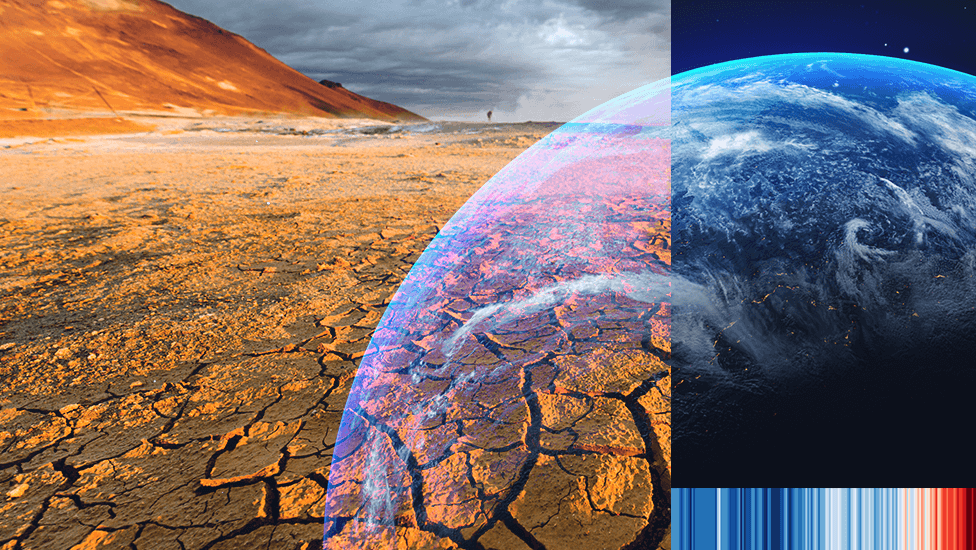-

-
-
Loading

Loading

Human activity is causing global temperatures to rise, resulting in more frequent and intense heatwaves and rising sea levels. The consequences of climate change are expected to worsen in the coming decades, but urgent action can mitigate the worst effects. Climate change refers to the long-term shift in the Earth's average temperatures and weather patterns. Currently, the world is approximately 1.1C warmer than it was in the late 19th Century. While climate change has occurred throughout the Earth's history, natural causes cannot account for the rapid warming observed in the past century. This recent climate change is primarily caused by human activities, especially the widespread use of fossil fuels such as coal, oil, and gas in homes, factories, and transportation. When fossil fuels are burned, they release greenhouse gases, predominantly carbon dioxide (CO2). These gases trap extra energy in the atmosphere near the Earth's surface, leading to global warming. Since the Industrial Revolution, when large-scale use of fossil fuels began, the CO2 concentration in the atmosphere has increased by about 50%. The CO2 from burning fossil fuels has a distinct chemical signature that matches the type increasing in the atmosphere. Even a global average temperature increase of 1.1C has had significant impacts on the environment, including extreme weather events and changes in people's lives. For instance, East Africa recently experienced its worst drought in four decades, endangering more than 20 million people with severe hunger. In 2022, European heatwaves resulted in an abnormal rise in deaths. As temperatures increase, the impacts of climate change worsen. The United Nations' Intergovernmental Panel on Climate Change (IPCC) emphasizes the crucial importance of limiting long-term temperature rises to 1.5C. While the science is not entirely certain, the difference between 2C and 1.5C of global warming could lead to irreversible consequences, such as the collapse of the Greenland Ice Sheet. Tipping points, beyond which changes accelerate and become irreversible, are a major concern, but their exact location is unclear. According to the IPCC, around 3.3 to 3.6 billion people are highly vulnerable to climate change, with those in poorer countries expected to suffer the most due to limited resources for adaptation. This raises questions of fairness, as these countries have contributed only a small percentage of greenhouse gas emissions. Nevertheless, the consequences can spread globally, such as through crop failures impacting food prices. In the landmark Paris Agreement of 2015, nearly 200 countries pledged to strive for a global warming limit of 1.5C. To achieve this, net zero CO2 emissions must be reached by 2050. Net zero means minimizing greenhouse gas emissions and removing any remaining emissions from the atmosphere. Most countries have set or are considering net zero targets. However, greenhouse gas levels are still rising rapidly, making it likely that the world will exceed the 1.5C limit, according to the IPCC. Despite the challenges, there have been advancements in areas such as renewable energy and electric vehicles. World leaders convene annually to discuss their climate commitments, with the next summit (COP28) scheduled to take place in the United Arab Emirates in November and December 2023. While major changes need to be initiated by governments and businesses, individual efforts can also make a difference. It is essential to address climate change collectively, given its far-reaching consequences.